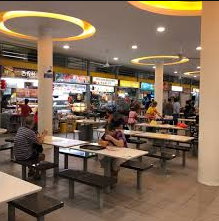Knight Frank warns that a saturated market is fuelling unsustainable competition, business failures, and rent pressures across the sector
The ongoing surge in food and beverage (F&B) outlets across Singapore may be doing more harm than good, with Knight Frank cautioning that unchecked expansion is straining operators, diners, and the wider retail ecosystem.
According to a report released on 14 April and cited by The Business Times, store openings have consistently outnumbered closures, leading to increased competition in an already limited market. Knight Frank said Singapore’s small consumer base is struggling to support the rapid inflow of new entrants.
The consultancy noted that more than 3,000 F&B outlets shuttered in 2024, with monthly closures exceeding 200 in October—outpacing even pandemic-era averages. Notable names like Eggslut, Manhattan Fish Market, Burger & Lobster, and Haidilao have exited the local scene amid these headwinds.
Despite this, the allure of Singapore’s food market remains strong, with 3,793 new businesses joining the sector last year. Many local operators are now experimenting with cost-saving models such as home-based kitchens and smaller-scale setups in an attempt to sidestep rising rental fees.
Knight Frank’s head of retail, Ethan Hsu, expressed concern that the industry has reached a saturation point. “We may soon require measures to cool the pace of expansion, ensuring the sector’s viability in the long term,” he said.
Among the proposals suggested in the report are location-based licensing limits, caps on the percentage of mall space allocated to F&B tenants, and minimum unit size regulations. Additionally, Knight Frank floated the idea of imposing taxes on F&B chains that expand too aggressively within short time frames.
Hsu highlighted the environmental and financial impact of the boom-to-bust cycle. “This rapid growth, followed by equally swift closures, is not only wasteful in terms of capital and resources, but also unsustainable for the sector.”
He added that without intervention, the closure of acclaimed establishments, including Michelin-starred restaurants, could become increasingly common, ultimately weakening the city-state’s culinary identity.
On a broader scale, Knight Frank also flagged external risks. US President Donald Trump’s tariff policies could dampen business confidence and slow rental growth in Singapore’s heavily trade-reliant economy.
In early 2025, rents for top-tier retail spaces in Orchard rose marginally by 0.4% to S$31.20 per square foot per month (psf pm). Suburban retail locations saw a 0.3% increase to S$26.80 psf pm, while rents in Marina Centre, City Hall and Bugis edged up 0.6% to S$26.40 psf pm. Conversely, city fringe rents slipped by 0.3% to S$24 psf pm.
The consultancy noted that the country’s modest forecast of 1% to 3% growth in prime retail rents this year could be derailed by trade-related volatility.
While Knight Frank’s findings point to a multifaceted challenge, some locals placed the blame squarely on high rental and labour expenses. Others remarked that dining out is simply becoming unaffordable due to GST and service charges, making home-cooked meals increasingly appealing.








